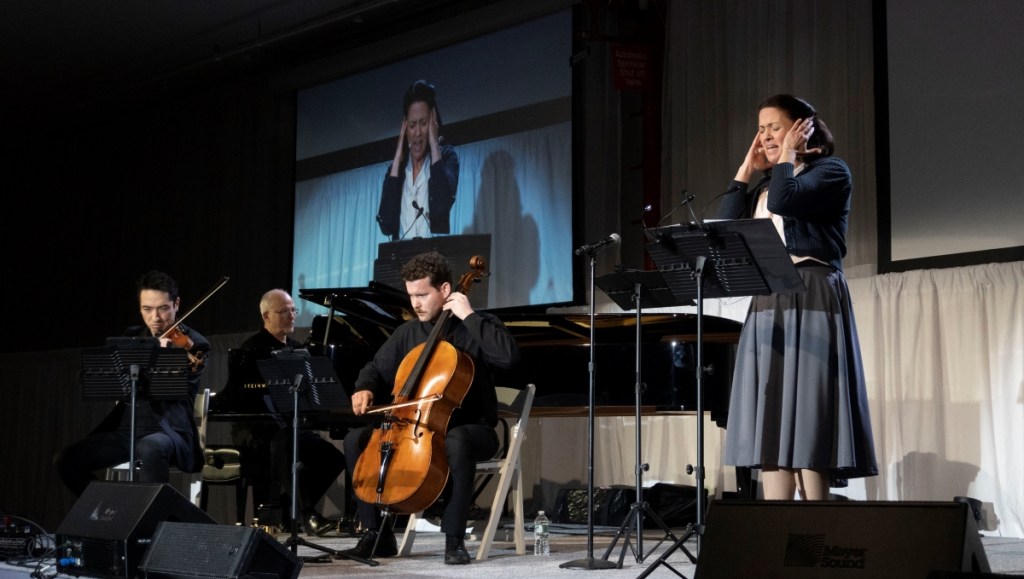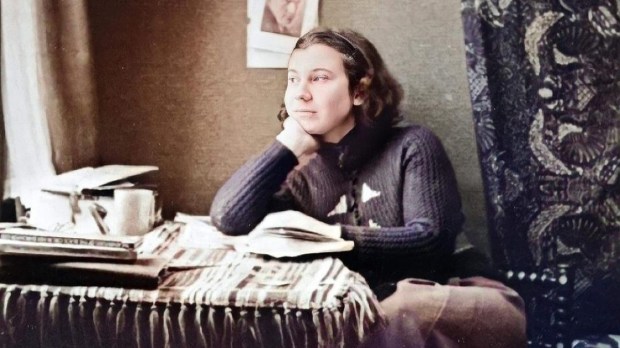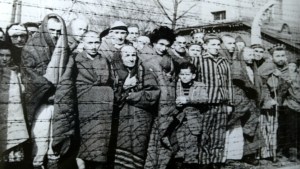November 30, 2023, marks the 80th anniversary of the death of Etty Hillesum in the Auschwitz concentration camp. A young Jewish woman from Amsterdam, Hillesum possessed a fierce but highly erratic spirit. As a young woman, much of her energy went to political causes or love affairs. As Europe began to descend into the horror of Nazism, however, Hillesum looked more deeply into her own experience and realized that her personal struggles had a deeper spiritual significance.
The diary and letters that she kept during this period, from the beginnings of the Jewish persecution to the eve of her death, are now cherished by readers.
One man, the composer Jonathan Fields, was so moved by the writings that he composed a theater work in which an actress reads extracts of Hillesum’s diaries and letters accompanied by an original score for piano, violin, cello, and soprano. Titled Ettty Hillesum: The Thinking Heart of the Barracks, the piece is a deeply moving and heartrending experience, bringing to life this woman’s deep suffering, but also her triumphant discovery of the Mystery at the core of human experience. It premiered at the New York Encounter, a Catholic cultural gathering, in February.
In a recent article, Fields wrote:
I could not believe this transformation from the self-centered unstable character that I met at the beginning of her diary to someone filled with gratitude for the beauty of life, even within the suffering of thousands of her fellow Jews in the Westerbork Transit Camp (this was the camp all Dutch Jews were sent to before being shipped to extermination camps).

Aleteia spoke with Jonathan Fields about his new theatrical work.
What is it about Etty Hillesum that made you want to take on this project?
I am a convert to Catholicism from secular Judaism. I suppose in some way I have always looked for a voice that resonates with my experience both as a Jew and a Catholic. Etty’s intense search for the truth seemed very close to my experience. It’s hard to put into words but her heart and language were very familiar to me as both a Jew and a Christian.
It was not only her vision of life that moved me but also the poetry of her writing. There is an entry, a letter to her friend Tide on August 18, 1943. This is only a few months before her death. She pours out her gratitude to God in the midst of her life in Westerbork transit camp. That took my breath away and I began to compose starting from that inspiration. It is written in the tradition of the psalms: the most intimate and sincere praise of God I have ever read.
It’s becoming obvious that today’s world is not much more stable than Hillesum’s. What do you think she has to say to the people of today?
Etty early on decides that the only way for her to face the instability of the world outside her is to face her own instability. She describes many scenes of human suffering and brutality but arrives to this conclusion again and again:
“I really see no other solution than to turn inwards and to root out all the rottenness there. I no longer believe that we can change anything in the world until we first change ourselves. And that seems to me the only lesson to be learned.”
This work on herself helped to blossom in her an amazing charity to all she encountered in the camp. Her diary ends with these words: “We should be willing to act as a balm for all wounds.”
She was only 29 when she died. Certain of her writings are so full of wisdom, you’d think she was 92.
Etty was a keen observer. One entry describes her looking at Japanese prints. She contemplates the empty spaces of the print as it concerns her writing,”The few great things that matter in life can be said in a few words … All that words should do is lend the silence form and contours.” The smallest thing that interested her was worthy of this depth of response.
You can watch a trailer for Ettty Hillesum: The Thinking Heart of the Barracks below.


